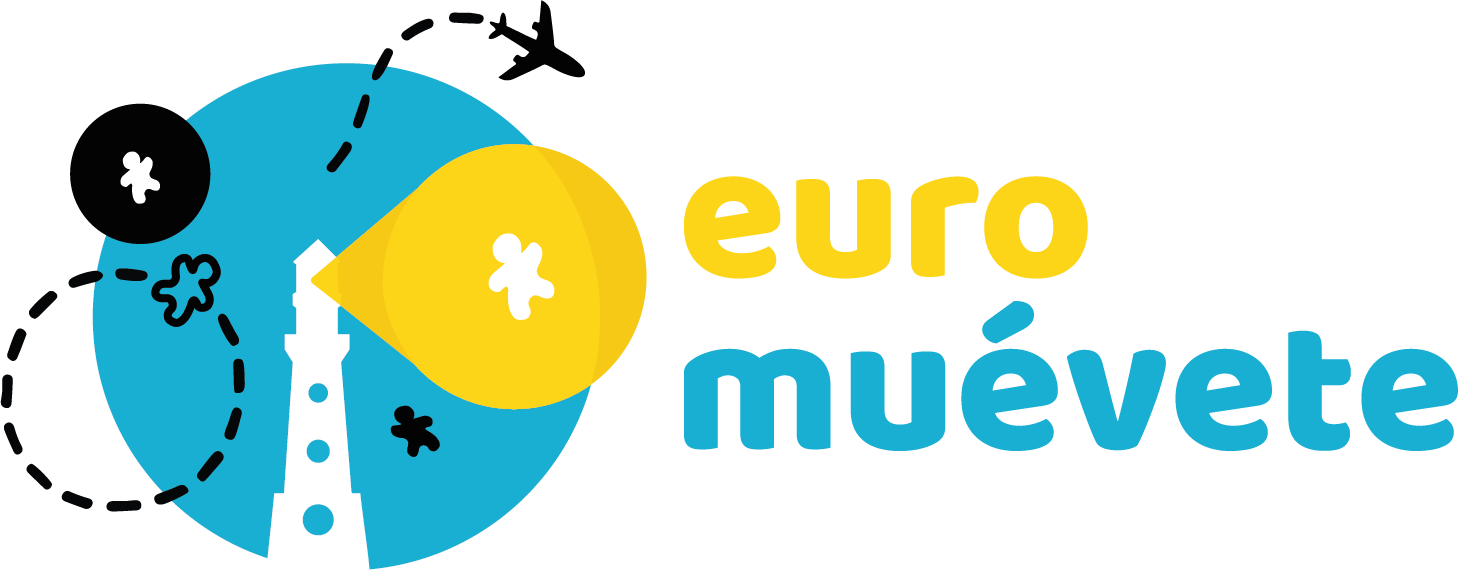DisinformACTION! Final conference
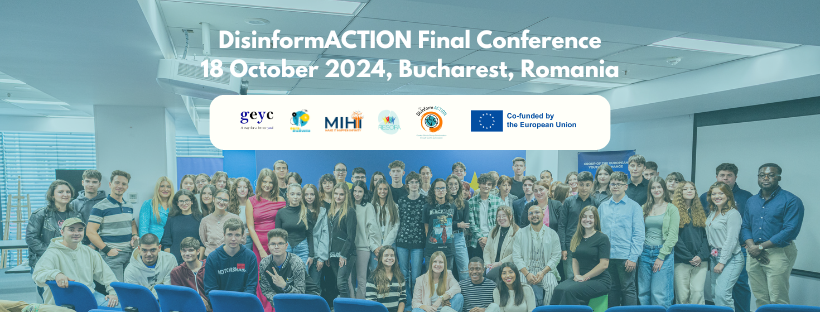
On October 18th, 2024, the DisinformACTION project reached a significant milestone with its Final Conference, held at the European Parliament Liaison Office in Romania. This event marked the conclusion of a two-year journey aimed at empowering young people to combat climate change disinformation. The conference brought together 79 educators, policymakers, youth leaders, students and project partners to celebrate achievements, discuss future strategies, and reinforce the critical role youth play in addressing climate-related challenges.
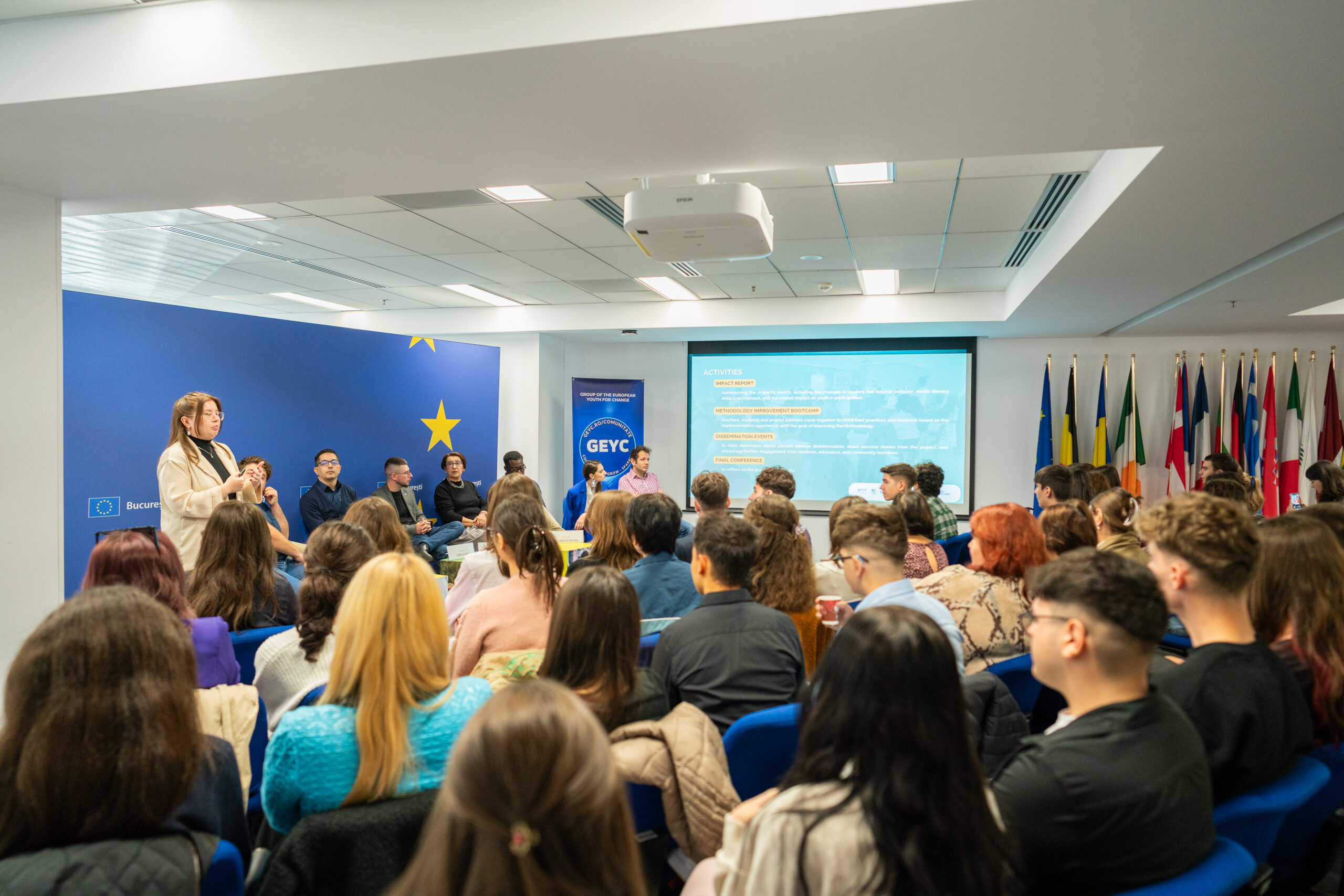
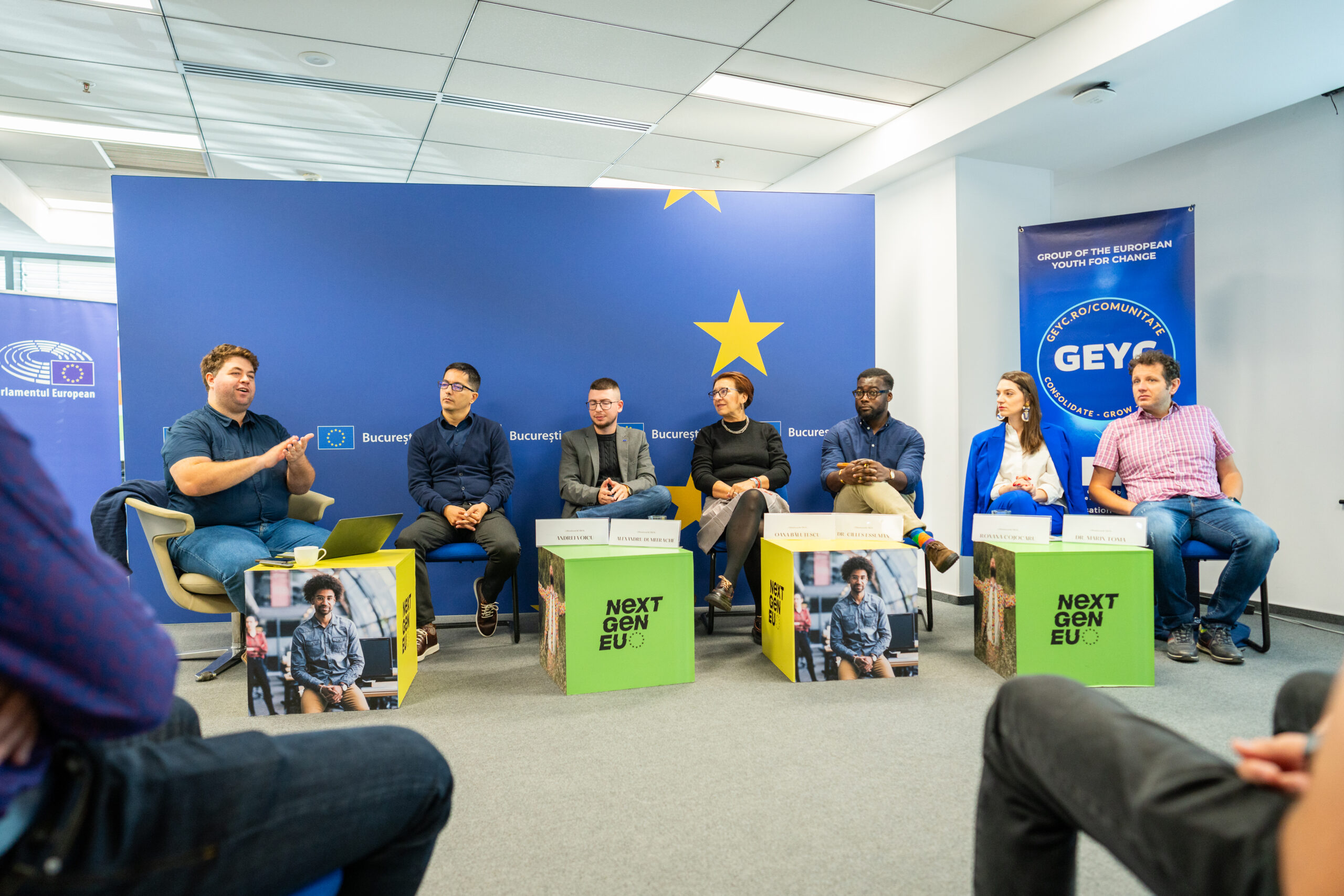
The DisinformACTION project, implemented across France, Latvia, Romania, and Spain, made a profound impact on promoting media literacy and encouraging e-participation among young people. During the Final Conference, several key outcomes were highlighted:
-
Enhanced Fact-Checking Habits: One of the most notable achievements was the significant increase in students’ fact-checking habits before sharing information online. This demonstrates the project’s success in cultivating responsible digital behavior and critical thinking skills.
-
Empowered Educators: Through the training of 109 teachers in the Climate Change Ambassadors Methodology, the project ensured that its impact will continue beyond its formal duration. These educators are now equipped to guide students in recognizing and challenging climate disinformation in their communities.
-
Increased Youth Engagement: A marked improvement was seen in students’ confidence to engage in online discussions, with figures rising from 57.7% to 74.2%. This growth highlights the project’s success in fostering a sense of agency and encouraging young people to actively participate in climate-related conversations.
At the heart of DisinformACTION’s success was the Climate Change Ambassadors Methodology, which combined non-formal education techniques with practical exercises to develop critical thinking skills among students. Key focus areas included:
-
Understanding Disinformation: Students were trained to distinguish between misinformation (unintentional inaccuracies) and disinformation (deliberate falsehoods), equipping them with the tools to critically assess online content.
-
Digital Campaign Skills: Using platforms like Canva, students learned to create effective digital campaigns, advocating for climate action and countering misinformation with accurate, impactful content.
-
Hands-on Learning: More than 80 workshops were conducted across the four partner countries, giving students the opportunity to apply their media literacy skills in real-world scenarios and gain a deeper understanding of digital citizenship.
By working closely with both students and educators, this methodology ensured that the project’s principles spread widely, creating a ripple effect in schools and communities.
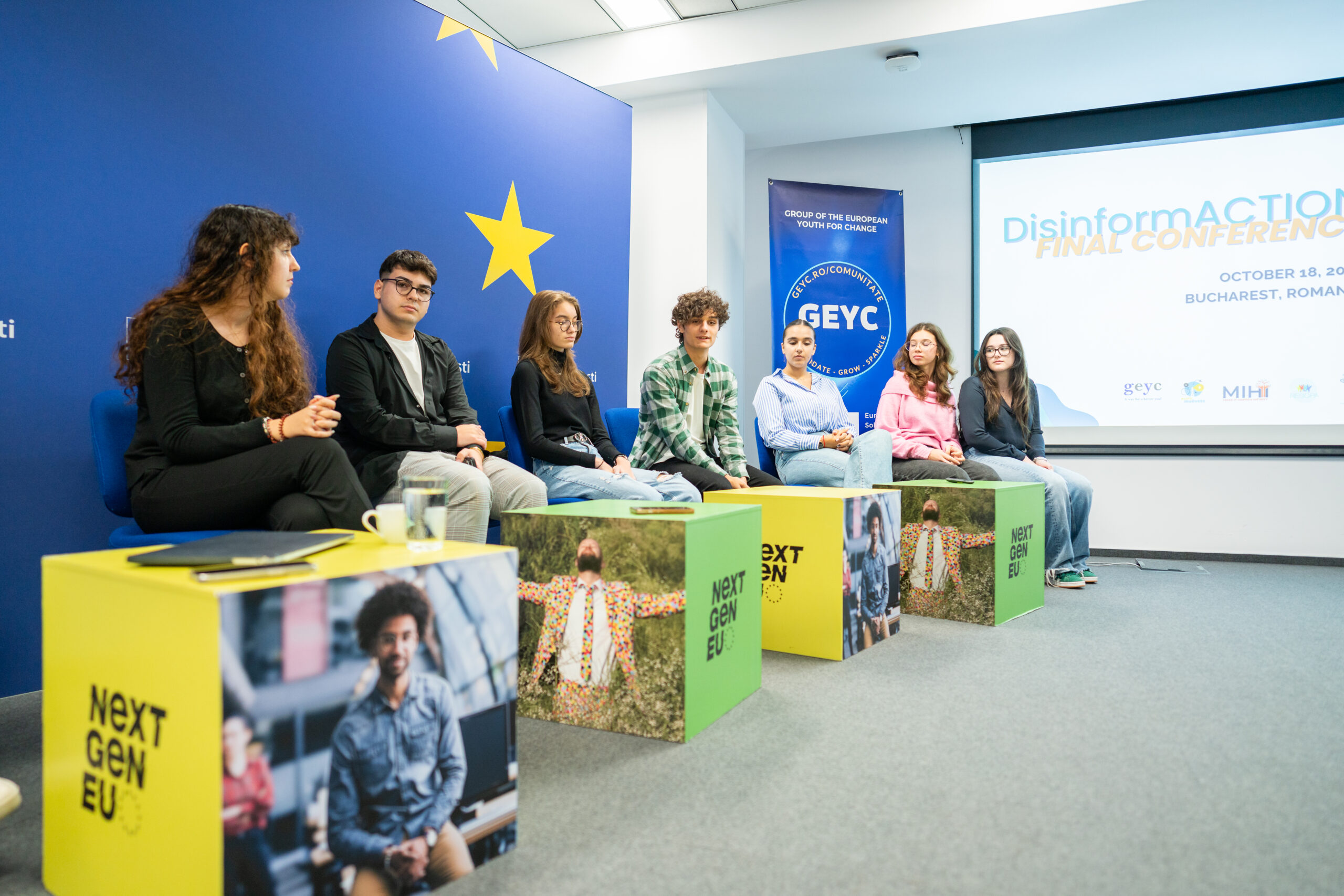
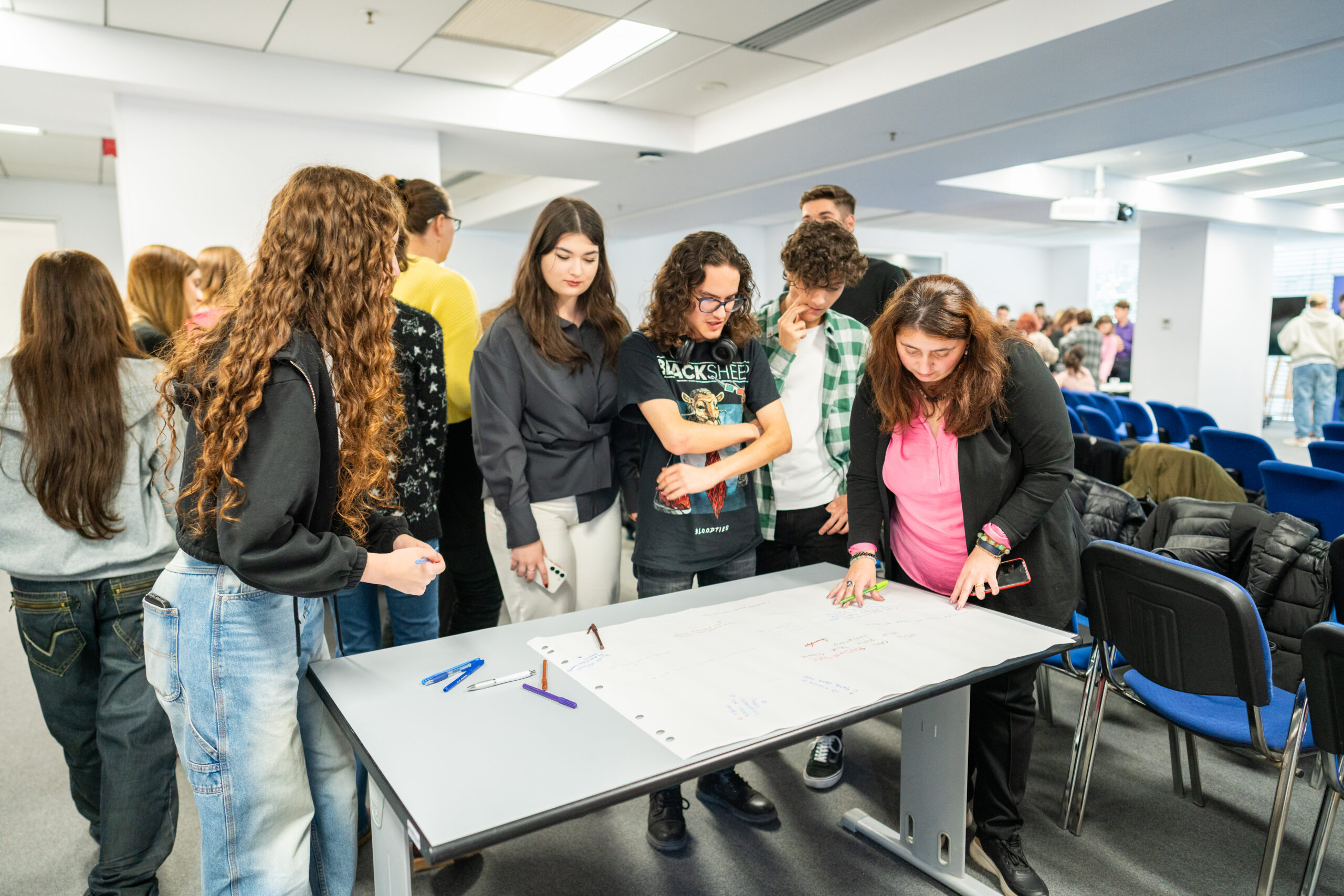
The Final Conference was not only a celebration of the project’s achievements but also a dynamic platform for discussions on youth leadership in climate action. The Opening Panel: “Empowering Youth Leadership in Climate Action” was a standout session, featuring experts who emphasized the importance of digital literacy in tackling climate change disinformation.
Participants also engaged in group work sessions, collaborating on recommendations to enhance youth participation in climate action. Key strategies included:
-
Building Partnerships: Strengthening collaborations between schools and environmental NGOs to integrate climate education into everyday learning.
-
Supporting Digital Campaigns: Advocating for increased funding and resources for youth-led digital campaigns aimed at spreading accurate climate information.
-
Advocating for Policy Change: Calling for stricter regulations on social media platforms to combat the spread of disinformation.
Feedback from participants was overwhelmingly positive. Young attendees expressed newfound confidence in using their voices to challenge false information, with one student sharing, “I feel more empowered to speak up online, and this conference gave me the tools to do so effectively.”
Educators also appreciated the opportunity to connect with their peers and exchange best practices for implementing the Climate Change Ambassadors Methodology. The networking lunch fostered in-depth discussions on future collaborations and the continued fight against climate disinformation.
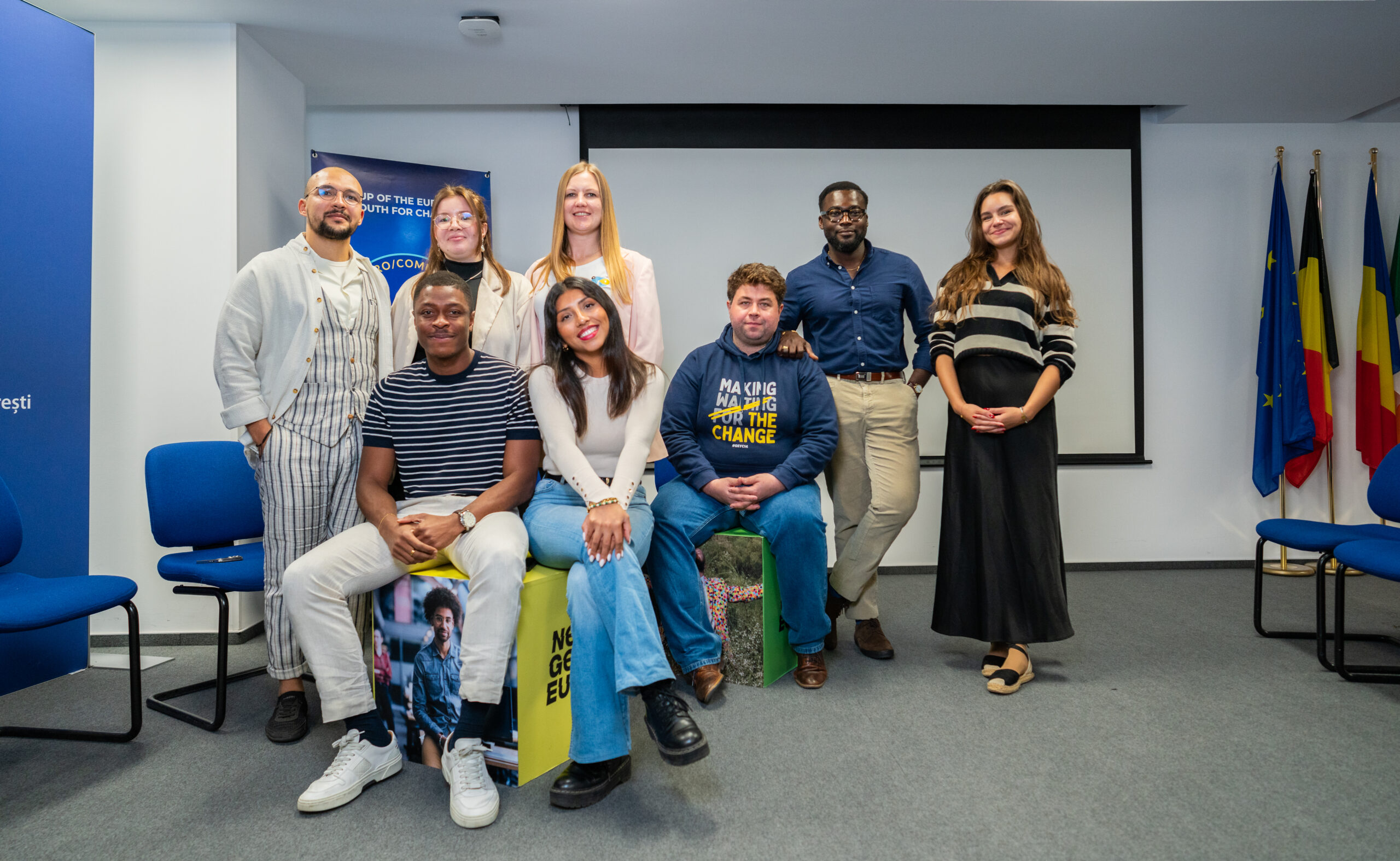
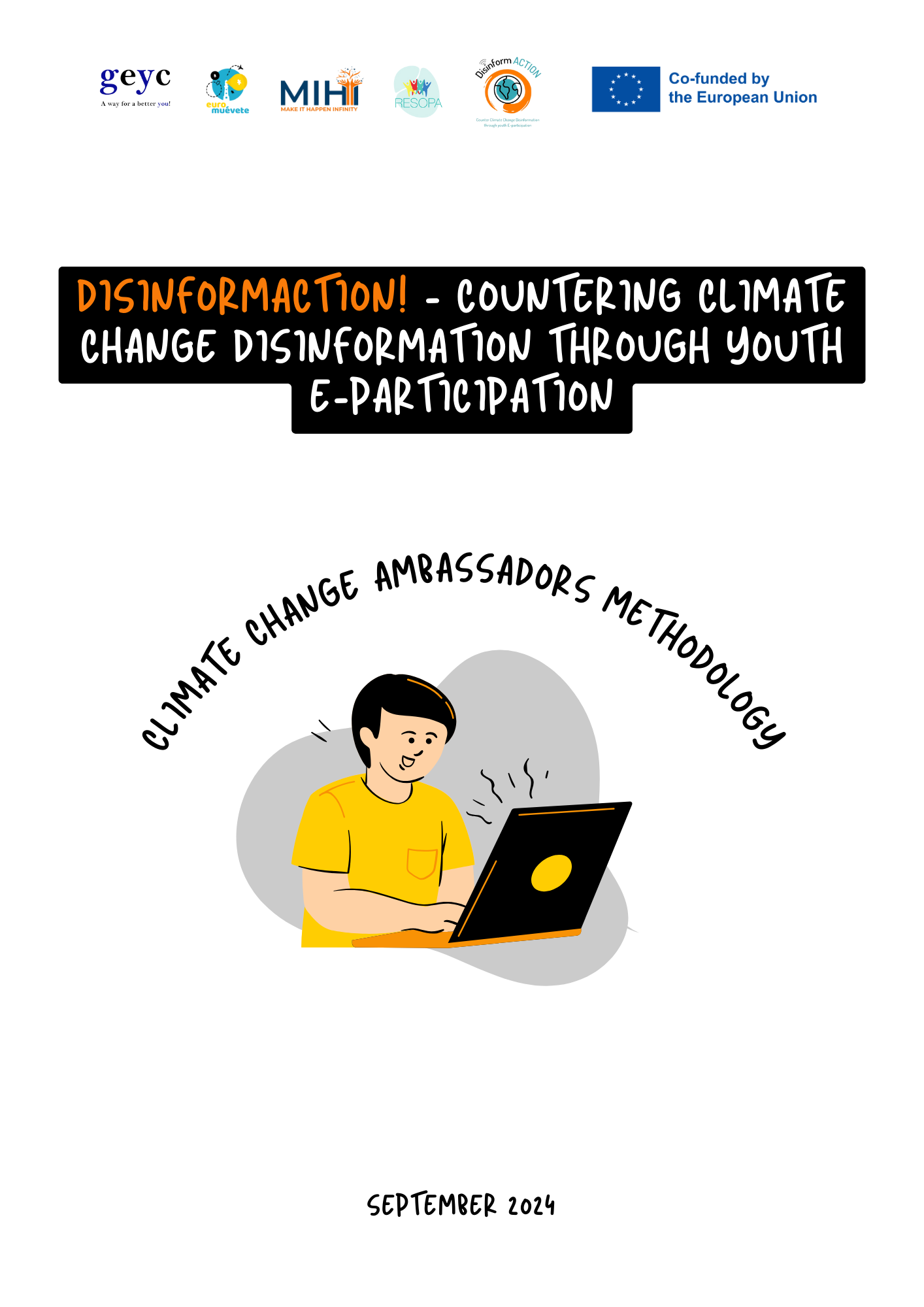
While the Final Conference marked the conclusion of the DisinformACTION project, it also underscored that the work is far from over. The project has laid a strong foundation for long-term change by equipping young people with the tools to become critical thinkers and climate advocates. The connections made and the knowledge gained during this journey will continue to drive the fight against climate disinformation in the years ahead.
As we look to the future, we remain committed to supporting the next generation of climate leaders and ensuring that youth voices are central in the conversation on climate action. By building on the momentum generated through DisinformACTION, we aim to continue promoting media literacy and empowering young people to make a lasting impact.
